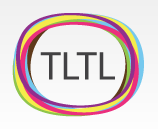Every few decades or centuries, a new set of skills and intellectual activities become crucial for work, conviviality, and citizenship - often democratizing tasks and skills previously only accessible to experts. Digital fabrication and ‘making’ could be a new and major chapter in this process of bringing powerful ideas, literacies, and expressive tools to children. Today, the range of accepted disciplinary knowledge has expanded to include not only programming, but also engineering and design. In addition, there are calls everywhere for educational approaches that foster creativity and inventiveness. In this chapter, I will first briefly review the history of engineering education to show the rise and fall then rise again of the making and building as curricular foci. I then discuss the theoretical underpinnings of project-based, student-centered, constructionist learning, showing that much of what digital fabrication labs can enact was already predicted and advocated in the theories and writings of John Dewey, Seymour Papert, and Paulo Freire. The following section approaches the educational benefits of digital fabrication and how it could be a unique tool in the hands of progressive educators. In the final part of the chapter I present not only four prototypical episodes that exemplify the advantages and perils of FabLabs in schools, but also some guidelines for the design of learning environments incorporating these types of technologies. See also the related article, "Travels in Troy with Freire: Technology as an Agent of Emancipation" at https://tltl.stanford.edu/publications/papers-or-book-chapters/travels-t....
Blikstein, P. (2013). Digital fabrication and ‘making’in education: The democratization of invention. FabLabs: Of machines, makers and inventors, 1-21.



